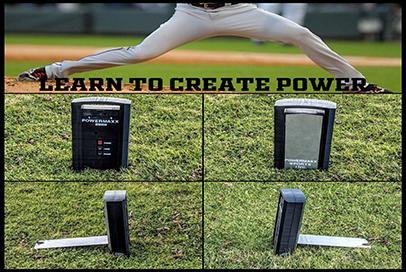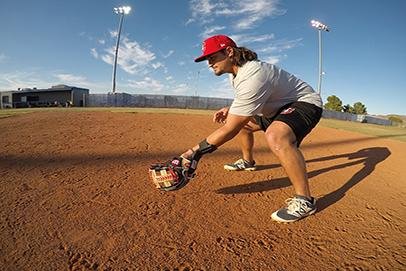Quick question for baseball coaches (and parents) to get things started:
What does the umpire yell at the start of every baseball game?
A.) Think ball!
B.) Execute ball!
C.) Work ball!
The answer is no to all three. The umpire yells out "Let's Play ball!" to signify the start of the game.
What a wonderful way to start a game. An annoying whistle doesn't blow or an obnoxious horn sound to start the game, rather the ultimate official mandates that both teams PLAY. How can you not love baseball? Allow your kids and players to play the game. I have seen several areas that have taken the "play" out of baseball.
Too much pressure can cause fear which takes the "play" out of baseball. Players that have unrealistic expectations placed on them often loose the enjoyment of playing baseball.
Being competitive has gotten a bad rap in athletics recently. When I work with parents and coaches, I hear "Yeah, I know my kid is a bad sport but he is just competitive." I disagree you can be competitive without being a poor sport.
Coaches and parents may use the same excuse in a different setting. "Yeah, I know I act like a jerk on the field...But I guess it's just my competitive nature coming through." No it really is you being a poor communicator and even less of a motivator to your players.
Players need motivation and guidance to help them become the best they can be. But when unreasonable expectations are placed on them then they loose the whole reason they got involved with baseball in the first place and that was to "Play ball!"
Too much instruction can cause "paralysis by analysis". As an instructor, I am often guilty of this one. I want my players and kids to do things technically correct.
Practice it is the appropriate time to get players into a setting that will give them the best chance for success. Playing the game using the proper mechanics happens after many practice reps to the point that the desired skill is more reactionary than thought out and processed. As players reach this level of competency they are truly able to "Play ball!" Controlling the speed of a drill and the likelihood of success for the player can be accomplished during practice. It is for these two reasons that the game is best taught in practice rather that in the game.
When players are trying to process training setting information at game speed it usually results in "paralysis by analysis". This leaves the player wanting to do the right thing but the speed of the game passes by them.
During the game, the speed is much faster and coaches have little control of the likelihood of success for his players. So remember, during the game, the mandate from the umpire is to "Play ball!" During practice is the (more) appropriate time for coaches to teach the game.
Over emphasizing critical situations makes it difficult to bounce back. Errors and strike outs are part of the game. When a player makes a bad play or gets out it is more difficult to bounce back if too much is made of the situation. Parents and coaches have said to players "your strikeout at the end of the game caused our team to loose the game." First of all no single play determines the outcome of the game and secondly, if it did would this style of parenting/coaching make a player more excited to try again? I seriously doubt it. Placing too much emphasis on a given situation, coaches and parents, can take the fun out of the game.
In the area of the country that I coach baseball, it has almost gotten to the point where kids are so matter of fact in the way they approach baseball that if they are enjoying the game it sure does not show on their faces.
When did aspiring to play professional baseball start to look like a job for a 9 year old? Use the younger ages to imagine and to fearlessly try to be great with no fear of failure.
To help keep it in perspective for overzealous parents and coaches...there have not been any elementary or middle school age players taken in the MLB Draft. It is o.k. when kids make mistakes. It is a vital part of the development process. As coaches and parents, try to encourage your kids to enjoy the game by doing what the umpire tells them to do... "LET'S PLAY BALL!"
Article Source: http://EzineArticles.com/2685425











